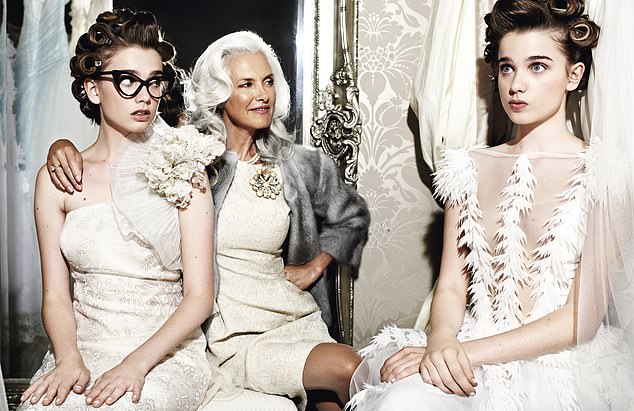During a visit home from university one weekend, my relationship with my parents and siblings changed forever. The moment itself was harmless enough, marked simply by my younger sister walking out of the front door of the family home in Devon and announcing she was going to take a driving lesson.
‘But how are you paying for it?’ I answered. ‘You’re still doing high school and you don’t even have a job!’
Haughtily, she replied that our parents had paid for a course of lessons, knowing full well that when I turned 17, they had said they couldn’t pay for me to learn to drive.
It marked the beginning of three decades of financial favoritism, during which time Mom and Dad, whom I love dearly, have continually dumped significant amounts of cash on my sister, brother and their children. Meanwhile, my two children and I have received nothing.
Since that day, my parents have paid for cars, insurance, house deposits and even exotic holidays for my brothers, who are now over 50 and still living in our hometown, while I am now 53 and have called London my home since I graduated.
This anonymous writer admits that financial favoritism has defined her relationship with her parents, now both 81, and her siblings (archive image)
Every time they max out their credit cards, guess who pays off the balance? Are your utility bills a little exaggerated? Ask mom and dad.
When their own children were born – they have two each and are now 20, the same as mine – our parents funded prams, then school uniforms, driving lessons, first cars, university fees, laptops and mobile phones. They even paid my brother’s legal fees when he had to go through a costly divorce.
The list goes on and on, running into several hundred thousand pounds, all paid for from our parents’ savings, and that’s just what I know.
Financial favoritism has defined my relationship with my parents, now both 81, and my siblings.
But what matters to me is not the money, although it certainly would have been useful to me over the years. No, what I care about are the obvious questions it raises: do my parents love my siblings more than me? And, if so, why?
The only plausible explanation I can think of is that I’m being “punished” in some way for being the one who strayed from the herd to forge a successful career as a human resources director in the city.
Until that day when my sister dropped the bombshell about her driving lesson, our parents had really treated us the same.
Gifts, clothes and treats had always been distributed fairly. Until I, the oldest child, left home to go to college. Suddenly, and profoundly, a line was drawn under any semblance of fairness.
Perhaps the most painful example of financial favoritism was when I got married in France. Mom and Dad didn’t come because they said they couldn’t afford it (they were very secretive about their money at the time), which broke my heart.
I offered to pay for both of them, but their response was that they would never attend a wedding abroad, not even their own son’s, because it was not traditional.
Seven years later, my sister also got married in France and, as you may have guessed, my parents went to the wedding! When I questioned them and told them how hurt I was, my father didn’t say anything and my mother simply refused to talk about it.
I try very hard not to betray my parents about my feelings on the matter. Worrying them and causing a rift that may not have been mended by the time they die is a risk I am not willing to take. With my siblings, however, it is a different matter.
It all came to a head five years ago, when my brother casually mentioned in a phone call that Mum and Dad had paid off their £5,000 credit card balance.
‘Enough! This has to stop!’ I told him. ‘Your expectations of Mom and Dad just aren’t fair.’

The anonymous writer says that her brothers are middle-aged with respectable careers and should not go “cap in hand” to receive handouts from their elderly parents.
Impassive, he responded: “It’s their money, they can do whatever they want with it.” You are miles away and you lack nothing.
It is true that my husband, who works in real estate, and I earn good money and have a lovely lifestyle, but my siblings have their own respectable careers in education and hospitality.
And they’re middle-aged, for God’s sake. They should not go, cap in hand, to beg from their elderly parents.
However, my brother didn’t stop there and ranted that while I live in a five-bedroom house with the mortgage paid off, his and my sister’s properties are much smaller.
He then added, cruelly, that since I live 200 miles away, he and my sister will be the ones to care for our parents if they get sick or incapacitated, so they “deserve” the extra financial help now.
Incredulous, I immediately called my sister, but received a similar response: “You’re the one who decided to move, you have a lot of money!” she said. In the end we didn’t speak for 18 months and inevitably, the reason for our fight leaked to mom and dad.
They were a little distant for a while, didn’t call me as often or were a little quieter when we talked, which was annoying.
The most painful thing is that, as a mother, I could never imagine treating my children differently, in any way, whether with my love, my time or my money.
For me, it is irrelevant whether one has a better job or a higher income; you simply do not do for one what you cannot (or do not want to) do for the other.
However, when a close friend died in 2021, my grief was compounded by the sudden realization that, despite everything, my family was too important not to be a part of my life.
I sent my parents, brother, and sister the same text message: “We haven’t talked in a while. I think it’s time for us all to move on.” My mother responded immediately, saying it was great to hear from me and to call her anytime. That’s exactly what I did that same day.
We cleverly avoided the topic of money and my sister called to tell me how happy she was to find out that Mom and I had talked.
Although she and my brother were willing to reconcile with me, their stance had not changed one iota.
As far as they were concerned, I was unlucky because I didn’t receive the same help as them and I was going to have to endure.
The same thing happened to my children too. They had to accept that their four cousins received financial help from their grandparents, while they never received a cent.
Luckily, they just accept the situation as something that has happened simply because we live so far away.
The whole saga made me decide to always treat my children exactly the same, to the point that I always keep a spreadsheet detailing any financial help or gifts each of them has received from their father and me.
For example, when they were at university, my son’s annual rent was £7,000, while my daughter’s was only £6,200. I gave her £800 in cash to make up the balance we had provided for their rent, but first I sat them both down and explained the matter.
Throughout their lives, I have always had identical budgets for Christmas and birthday gifts, while also encouraging them to be self-sufficient and financially savvy. Always giving money to children does them no favors in the long run.
When they turned 18, I charged them £50 a month for room and board to teach them to be financially responsible. During their college years, we encouraged them to work in a bar to help with living expenses, just as I had done to pay for my studies, which they both did willingly.
They are now embarking on their working lives in law and surveying respectively, they have a wonderful work ethic and money sense and have never asked me for money.
The same cannot be said of my nieces and nephews, who continue to rely on Grandma and Grandpa’s bank.
Today I am in a better place and the relationships I have with my parents and siblings have improved, if not close, but only because I have decided not to allow continued favoritism to consume me.
However, my brother is renovating a rundown house, largely funded by my parents, and privately I still feel incredibly hurt. It’s clear that I’m not considered an equal.
Still, I take comfort in the fact that my own children will never question my love for them or resent each other, knowing that we have invested in them equally in every sense of the word.
■ Told to Sadie Nicholas

